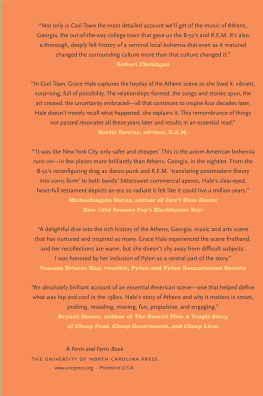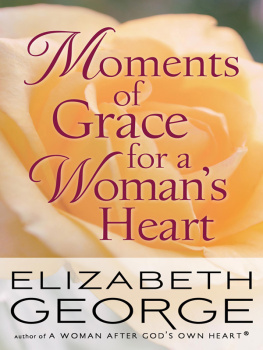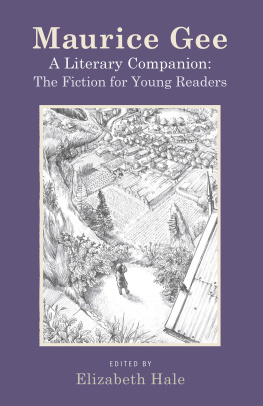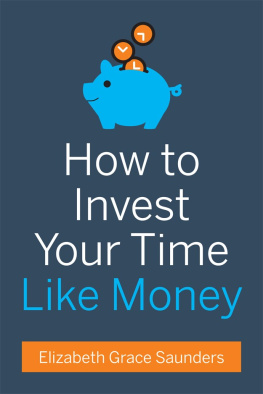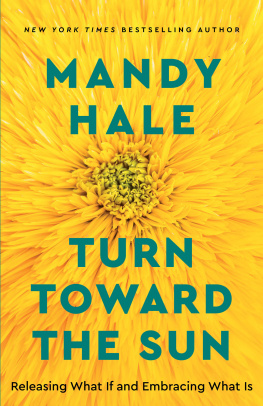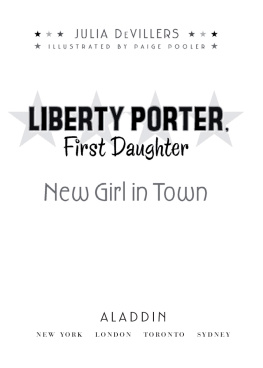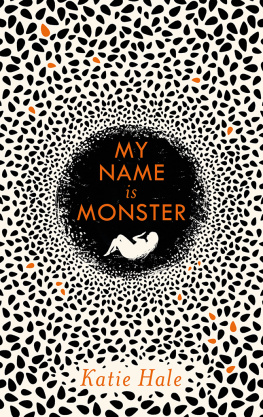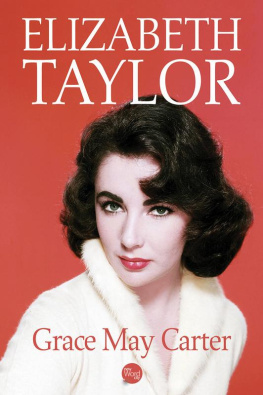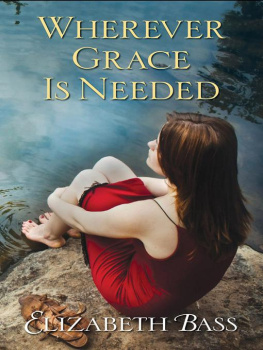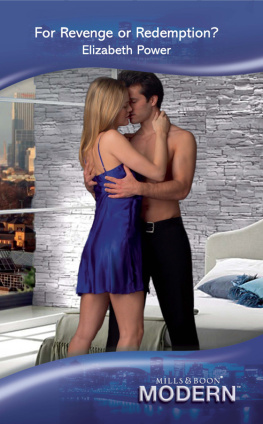Grace Elizabeth Hale - Cool Town
Here you can read online Grace Elizabeth Hale - Cool Town full text of the book (entire story) in english for free. Download pdf and epub, get meaning, cover and reviews about this ebook. year: 2020, publisher: The University of North Carolina Press, genre: Politics. Description of the work, (preface) as well as reviews are available. Best literature library LitArk.com created for fans of good reading and offers a wide selection of genres:
Romance novel
Science fiction
Adventure
Detective
Science
History
Home and family
Prose
Art
Politics
Computer
Non-fiction
Religion
Business
Children
Humor
Choose a favorite category and find really read worthwhile books. Enjoy immersion in the world of imagination, feel the emotions of the characters or learn something new for yourself, make an fascinating discovery.
- Book:Cool Town
- Author:
- Publisher:The University of North Carolina Press
- Genre:
- Year:2020
- Rating:5 / 5
- Favourites:Add to favourites
- Your mark:
- 100
- 1
- 2
- 3
- 4
- 5
Cool Town: summary, description and annotation
We offer to read an annotation, description, summary or preface (depends on what the author of the book "Cool Town" wrote himself). If you haven't found the necessary information about the book — write in the comments, we will try to find it.
Cool Town — read online for free the complete book (whole text) full work
Below is the text of the book, divided by pages. System saving the place of the last page read, allows you to conveniently read the book "Cool Town" online for free, without having to search again every time where you left off. Put a bookmark, and you can go to the page where you finished reading at any time.
Font size:
Interval:
Bookmark:
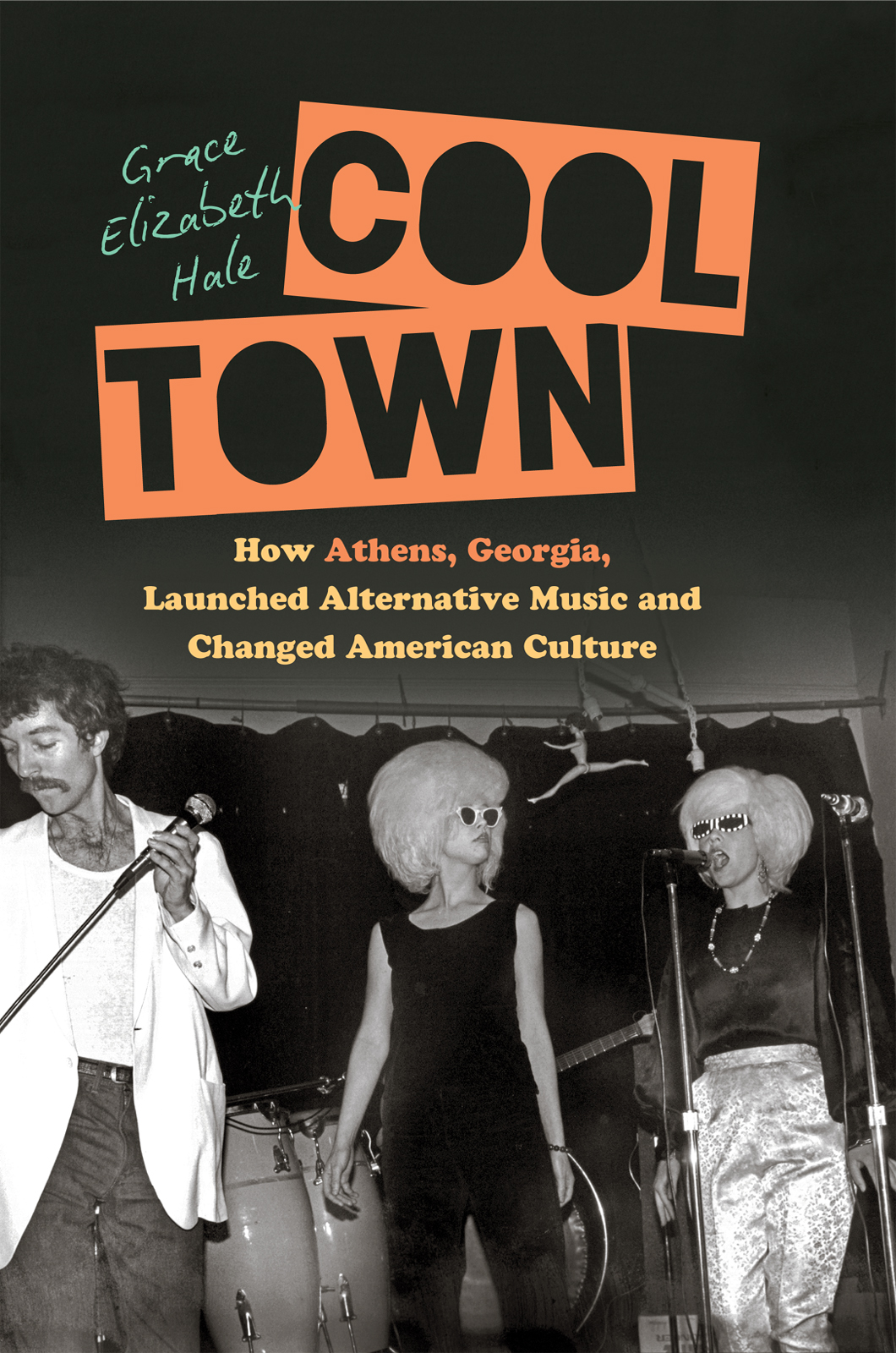
COOL TOWN
How Athens, Georgia, Launched Alternative Music and Changed American Culture
Grace Elizabeth Hale
THE UNIVERSITY OF NORTH CAROLINA PRESS
Chapel Hill
This book was published under the Marcie Cohen Ferris and William R. Ferris Imprint of the University of North Carolina Press.
2020 Grace Elizabeth Hale
All rights reserved
Designed by Jamison Cockerham
Set in Arno, Biro, Blackout, and Cooper by Tseng Information Systems, Inc.
Jacket photograph by Kelly Bugden.
Manufactured in the United States of America
The University of North Carolina Press has been a member of the Green Press Initiative since 2003.
LIBRARY OF CONGRESS CATALOGING-IN-PUBLICATION DATA
Names: Hale, Grace Elizabeth, author.
Title: Cool town : how Athens, Georgia, launched alternative music and changed American culture / Grace Elizabeth Hale.
Description: Chapel Hill : The University of North Carolina Press, [2020] | Includes index.
Identifiers: LCCN 2019035107 | ISBN 9781469654874 (cloth : alk. paper) | ISBN 9781469654881 (ebook)
Subjects: LCSH: Alternative rock musicSocial aspectsGeorgiaAthensHistory20th century. | Alternative rock musicGeorgiaAthensHistory and criticism. | BohemianismGeorgiaAthensHistory20th century. | Youth, WhiteGeorgiaAthensHistory20th century. | Nineteen eighties.
Classification: LCC ML3918.R63 H33 2020 | DDC 306.4/84260975818dc23
LC record available at https://lccn.loc.gov/2019035107
epigraph: These Days. Lyrics and Music by William Thomas Berry, Peter Lawrence Buck, Michael E. Mills, and John Michael Stipe. Copyright 1986, Universal Tunes on behalf of Night Garden Music. Used by Permission. All Rights Reserved.
epigraph: Cool. Written and Performed by Pylon (Bewley / Briscoe Hay / Crowe / Lachowski). Copyright 1979, 2019, Pylon Music Two. Administered by BMG/Bumblebee. Used by Permission. All Rights Reserved.
epigraph: Carnival of Sorts (Box Cars). Lyrics and Music by William Thomas Berry, Peter Lawrence Buck, Michael E. Mills, and John Michael Stipe. Copyright 1982, Universal Tunes on behalf of Night Garden Music. Used by Permission. All Rights Reserved.
epigraph: Cant Get There from Here. Lyrics and Music by William Thomas Berry, Peter Lawrence Buck, Michael E. Mills, and John Michael Stipe. Copyright 1985, Universal Tunes on behalf of Night Garden Music. Used by Permission. All Rights Reserved.
epigraph: Brother. Lyrics and Music by Oh-OK. Copyright 1982, Oh-OK. Used by Permission. All Rights Reserved.
For Bill
COOL TOWN
We are hope despite the times.
R.E.M., These Days (1986)
In Athens, Georgia, in the 1980s, if you were young and willing to live without much money, anything seemed possible. Magic sparkled like sweat on the skin of dancers at a party or a club. Promise winked underfoot like the bits of broken glass embedded in the downtown sidewalks. A new world seemed to be emerging out of our creativity, our music and art, and our politics, but also the way we understood ourselves and related to each other.
In my memory, the weight of the air on summer nights made possibility seem like a substance I could hold in my hand. Always, local bands played and people listenedat practice spaces and house parties and venues like the 40 Watt. People went to hear their roommate or boyfriend or coworker play one night and urged everyone to come and see their group the next. Easy to make and easy to hear, live music was everywhere. We used it to reinvent and express ourselves and connect with each other. We used it to live.
After the clubs let out, the scene kept moving until dawn. Small groups climbed the fences at apartment complexesno one would admit to living in oneand went skinny-dipping. Sometimes people walked to a big Victorian house on Hill Street and danced to mix-tapes in the hall between the rolled-back pocket doors until their clothes dripped with sweat and their heads spun. Occasionally, at midnight, a small drama troupe would perform an original play up and down the aisles of the twenty-four-hour Kroger. Film buffs too young to see movies like Sleeper, Raging Bull, and Paper Moon when they came out watched them for free in the air-conditioned quiet of the seventh floor of the University of Georgias library. Often, people paired up, going home with the person they were seeing or an acquaintance or someone they had just met. One perfect July night, I lay naked with a friend on the cool cement floor of a screen porch as the wet heat thinned and the crickets rasped and we talked about music until dawn. Possibility proved more addictive than the beer everyone drank and the drugs many people took.
W e were unlikely people in an unlikely place. No one expected us to do these creative things. No one who mattered thought that we could make a new kind of American bohemia. Yet Athens kids built the first important small-town American music scene and the key early site of what would become alternative or indie culture.
We had grown up anything but alternative. Home was a new version of the South created by desegregation, interstates, air-conditioning, and airports. Our parents had mostly enjoyed the rewards, a hard-earned success that had been knocked back in the last decade by the oil crisis, stagflation, and the Reagan recession. Our schools practiced a form of neglect that suggested racial integration was easy, feminism unnecessary, and gay sexuality nonexistent. None of that was true, of course, but white, middle-class kids often skated over the consequences.
On some vague level, we sensed that we were living in a changed and changing world, yet the adults around us seemed to be in denial, clinging to old ideas about life and work and community. The most visible alternative, the hippies and peace activists left over from an earlier generations counterculture, appeared to have degenerated into caricature. Reading books and music magazines and talking to older Athens artists and University of Georgia professors, we learned about creative communities in Paris and London and New York, places that had nurtured earlier rebels from the Beats and the jazz musicians and the abstract painters to the rockers and the drag queens and the punks. Some of us even got to know nearby folk artists and musicians, people who followed their own visions right here at home. We longed to send our yawp over the roofs of the world, too, to live for music and art and sex, to be daring and original and important. Why the hell not? We did not want to be rednecks or racists or conservative Christians or live in subdivisions or work as middle managers. We dreamed not of the Reagan-era Sunbelt but of a different world, a new, new, new South. And in the universitys libraries and archives and studios and galleries and concert halls and the towns old buildings, we found resources to try to make that world a reality.
The scene was our answer to what we understood as the failures and limits of our America. And our participation in this collective creativity transformed us. In my case, the scene took in an unhappy accounting major confused about politics and about six years later spit out a feminist and anti-racist scholar determined to live her life as art. Along the way, I waited tables and catered, made rugs and wall-hangings out of old clothes, took up painting and the cello, earned a masters degree in history, and cofounded and ran a local venue. When I left Athens to start a history PhD program elsewhere, I took that magical sense of possibility with me and used it to weather the perils of graduate school and the academic job market. My story was not unique. The scene changed everyone I knew. Middle-aged now, a historian and the mother of college kids myself, I can see how the things we learnedquestion the givens, find something to do that engages your passions, build community into whatever you do, and stop often for beauty and pleasureradically transformed the trajectory of our lives.
Font size:
Interval:
Bookmark:
Similar books «Cool Town»
Look at similar books to Cool Town. We have selected literature similar in name and meaning in the hope of providing readers with more options to find new, interesting, not yet read works.
Discussion, reviews of the book Cool Town and just readers' own opinions. Leave your comments, write what you think about the work, its meaning or the main characters. Specify what exactly you liked and what you didn't like, and why you think so.

